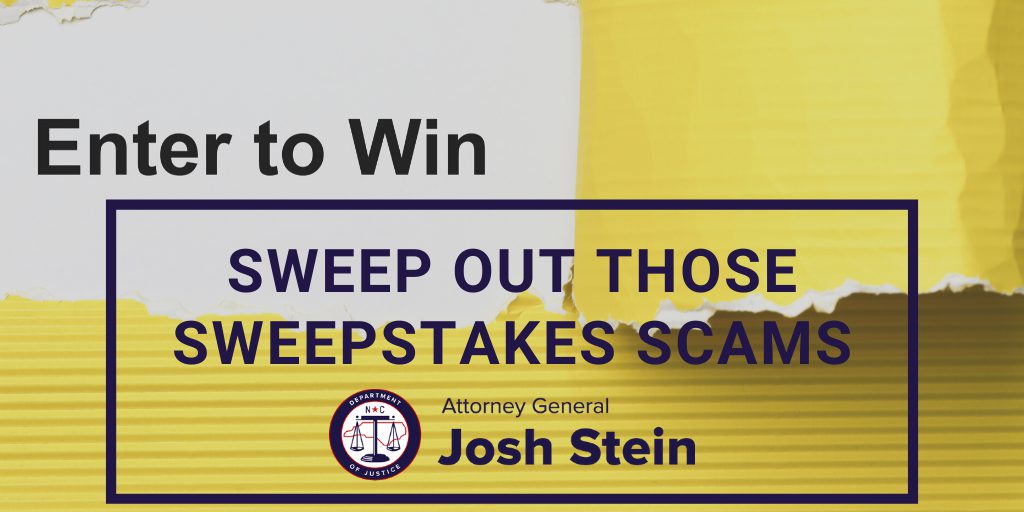
Attorney General Josh Stein
March 2021
You’ve won big! That’s an attention-grabbing line, right? We all love to win prizes and money, but all too often, the lure of a prize is just a scam to take our money. You or someone you know may receive an email, letter, or phone call telling you you’ve won a lottery or a big prize or are a finalist in a sweepstakes contest. Last year, North Carolinians reported to my office losing more than $1.4 million in 209 sweepstakes scams.
Be skeptical of messages claiming you’ve won or could win something. If you don’t remember entering a contest, it’s probably a scam. Many times, scammers will spam hundreds of people with calls or emails, telling them all they’ve won or are a finalist. This is just an attempt to try to get a few people to respond and share their personal or financial information. You can often catch these scams by checking the postage – a “bulk rate” or “presorted first class” posting means that the mailing went to many people at once.
Often, scammers will claim you’ve won a prize, but they’ll ask you to pay a small fee first to cover taxes or other costs associated with the prize. These upfront fees are illegal in North Carolina – if you’re asked to pay them, it’s a scam. You also never need to, and shouldn’t, share your Social Security or bank account numbers, credit card information, or other personal information to win a prize. And if you’re asked to pay using a gift card, it’s definitely a scam.
When it comes to sweepstakes offers, scammers often try to make it seem like you must buy something in order to have a chance of winning. That’s not true. You have an equal opportunity to win a sweepstakes regardless of whether or not you buy anything. Read the fine print in these offers carefully. It often includes conditions or caveats that change the offer and determine what the odds of winning really are – they are often very slim.
And anyone who offers lottery tickets through the mail or over the phone is trying to cheat you, because this is illegal. You can cut down on sweepstakes and other scam calls by signing up for the Do Not Call registry and contacting your phone service providers to ask them what free call blocking and labeling tools are available. You shouldn’t have to pay additional fees for these tools, and they can often help label or block spam calls.
If you think you, or someone you know, has been scammed with a fake sweepstakes or lottery scam, let my office know by calling 1-877-5-NO-SCAM or filing an online complaint at www.ncdoj.gov/complaint.
